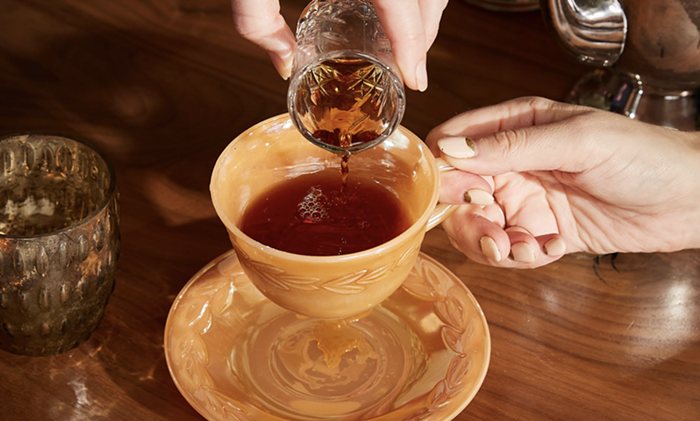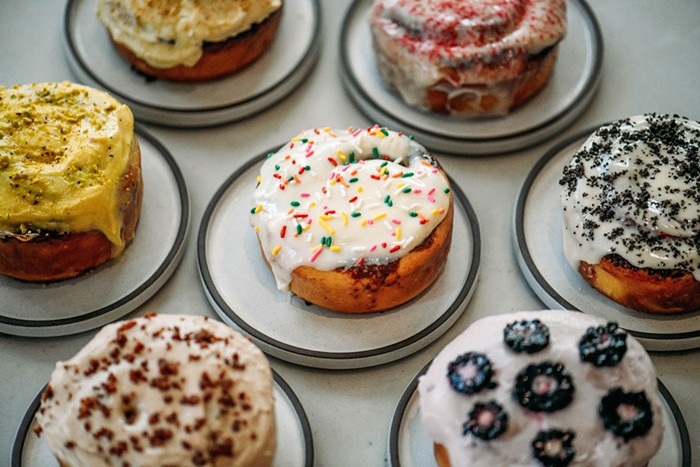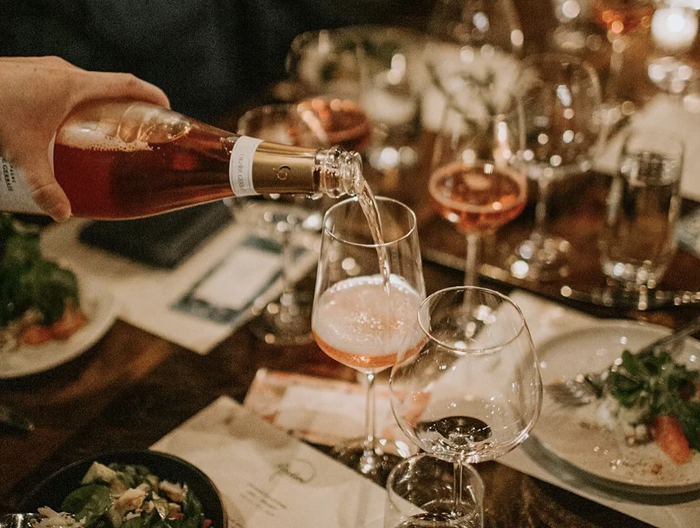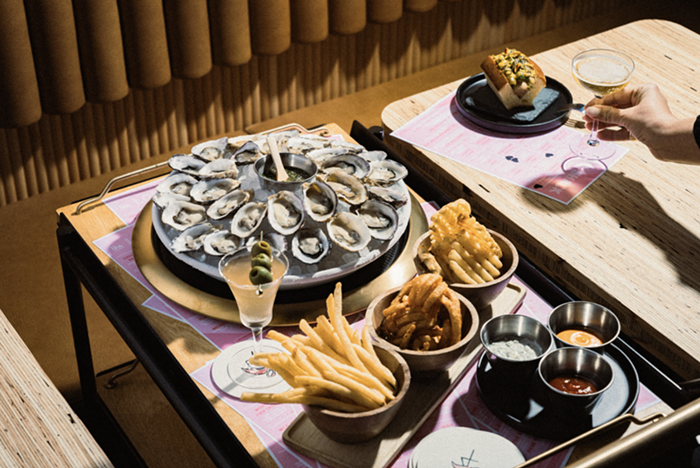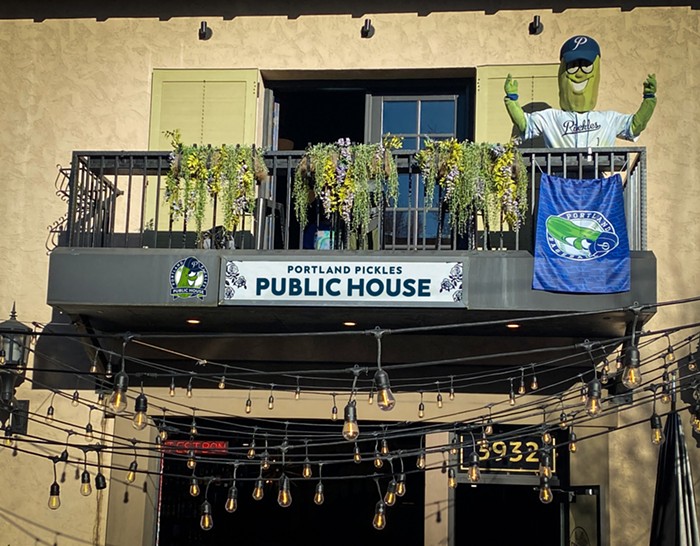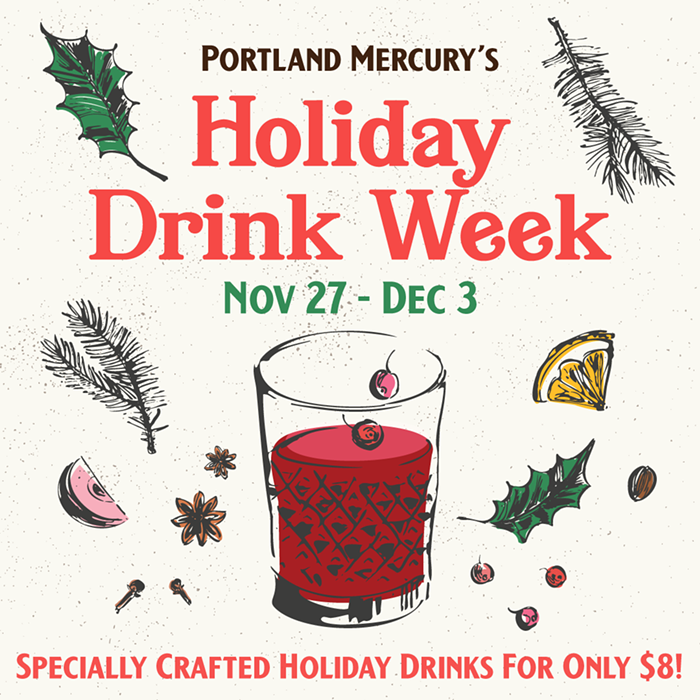WE'RE WELL INTO the first month of 2017, a time when many people elect to clean up their acts. Regular folks like me, who packed on more than a couple booze-and-cookie pounds over the holidays, often drop alcohol for a month to right the ship.
Some, like Bit House Saloon bar manager Jesse Card, do a Sober September and then enjoy another cleanup after the holidays. He joins a couple of Facebook groups for support, including one called January of Strength, whose mission is to go straight edge for a month.
“Old hardcore kids take the ‘edge’ for a month to clear their heads. It’s probably my most fun sobriety group,” says Card. He and fellow Bit House bartender Chris Churilla are planning on taking the entire year off from recreational drinking.
But for an increasing number of industry folks, “Drynuary” is for amateurs. These days, it seems like more and more are taking the plunge into permanent sobriety. In 2010, Gregory Gourdet (of Departure) moved here from New York to facilitate his overhaul, and hasn’t looked back. In fact, several of Portland’s most celebrated establishments have someone straight edge at the helm. Bartender Eric Nelson (Expatriate, Jacqueline, LangBaan) has been sober since May 2014.
“I was bad,” he says over email. “Like ‘chugging bottles of warm champagne in the bathroom at Stumptown’ bad.”
He was cheating on his partner, getting into fights, drinking the pain away, and hiding it all.
“One of those mornings I just had enough,” Nelson continues. “Couldn’t take the sweats, couldn’t take all the lying. It was either rehab or leap in front of a MAX. I called Ken Forkish [of Trifecta and Ken’s Artisan Pizza] and quit that day, put a blast on FB that I needed help, and checked into rehab that weekend.”
Some friends started a GoFundMe account to pay for his treatment, and his partner gave him another chance. Of all the changes Nelson’s been through, though, he says work hasn’t been one of them.
“I think sobriety has made me a better bartender,” he says. “My taste maker isn’t destroyed by a constant barrage of hooch. I can eat food again that I don’t have to buy from a drive-thru window. And I have a better appreciation for the flavors now that I don’t need them.”
Mika Paredes, industry it-girl behind Girls Club PDX (now cooking at Thistle in McMinnville), reached out for help via her social media community as well, when she blacked out and woke up in the hospital, where she stayed for a week. She’d been clean for a few years in her 20s, but began drinking again at 30. She and Nelson became friends during her detox, and Paredes was surprised at the outpouring of support from within the industry that helped her crash so hard. Greg Hall, son of a brewer and Chicago’s Goose Island Brewery brewmaster, “donated significantly” toward her month-long stay at a Canadian rehab facility. She’s found lots of support over the past year (November 19 was her anniversary), with friends like Naomi Pomeroy (her former boss at Beast) acting as cheerleaders for her sobriety.
Rehab was the “boot camp for the soul” that Paredes needed, ultimately helping her redefine her self-care and self-acceptance.
“It’s a hard, lonely journey,” she says.
She’s still finding balance between her career and sobriety, but if she had one wish, it’d be for Portland to get a decent discotheque so she could go out dancing after work.
Like Mika, Mercury restaurant critic alumnus Chris Onstad had a crash-and-burn event that landed him in the hospital and ultimately ended his marriage. After an expensive stint in rehab (covered by his then-wife’s health insurance), he started writing for the Mercury to get his head back in the game, but was so disenchanted with the booze-free beverages offered by the restaurants he was reviewing that he (and his neighbor) ended up launching Portland Soda Works to fill the void.
Onstad sees a cleaner future for those working in service.
“I sense a trend toward healthier lifestyles, not just in the industry, but across the younger generations,” he says. “I’ve been taken aback to learn that the bartenders at some of the best bars in town don’t drink recreationally. They’re fit and healthy people, businesspeople, and hosts. It’s a great direction for an industry whose romanticization of self-destruction has hurt so many lives.”
Nelson echoes this sentiment, albeit his is a slightly different perspective.
“There used to be that old saying about never trusting a bartender who doesn’t drink,” he says. “Well, that trope is played out and needs to be put to bed. I want this industry to hang around and I want it to be taken seriously. The only way that happens is if we take it seriously and grow the fuck up.”
Portions of these interviews have been edited for clarity.
